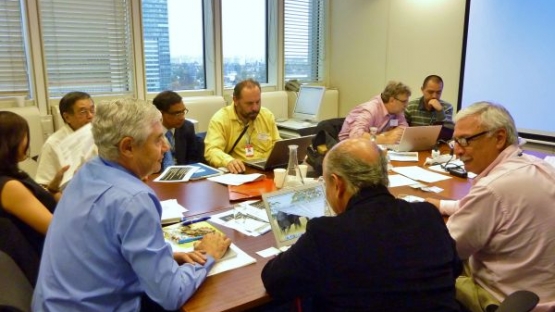IAEA Member States who wish to participate in the IAEA's 2014-2015 technical cooperation (TC) programme cycle are finalizing preparations for the submission of their project designs to the IAEA Secretariat. Submissions close in March, the final deadline for any national, regional or interregional projects that aims to start implementation in 2014. Following review by the Secretariat, the project designs are considered by the Technical Assistance and Cooperation Committee (TACC) and approved by the Board of Governors in November. Around 700 new projects are expected to be proposed for the 2014-2015 TC programme, spanning thematic areas that include human health, food and agriculture, water and environment, energy, safety and security.
Throughout 2012, counterparts from different regions took part in workshops, meetings and trainings to help them to design projects for the 2014-2015 TC programme. Training has continued throughout the early part of 2013 - this week, counterparts from Member States in the Asia and the Pacific region have participated in a workshop for the design of regional projects proposed under the Regional Co-operative Agreement for Research, Development and Training Related to Nuclear Science and Technology for Asia and the Pacific (RCA). A similar workshop took place last week to assist counterparts from the same region to design their national TC projects. Both meetings aimed to address and support project design, provide technical advice and guidance on necessary improvements and assist project counterparts to formulate the final draft of their project designs.






